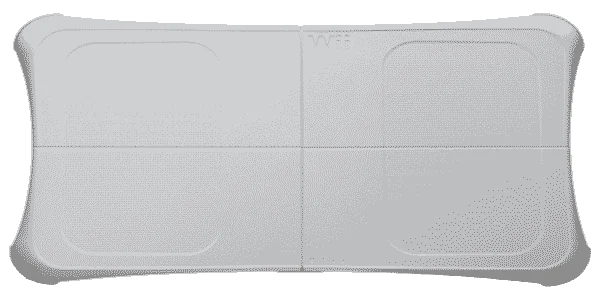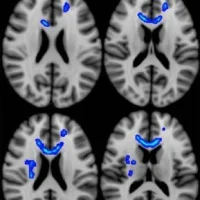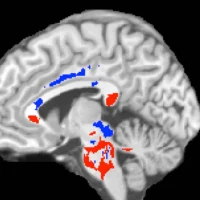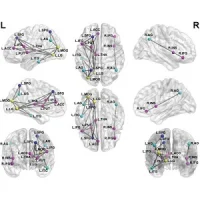According to new research published online in the journal Radiology, the Nintendo Wii Balance Board system can help people with multiple sclerosis (MS) reduce their risk of accidental falls. MRI scans reveal that the balance board system induces favourable changes in brain connections associated with balance and movement.
MS is a disease of the central nervous system in which the body's immune system attacks the protective sheath around the nerve fibres. Balance impairment is a common symptom in patients suffering from MS. A large number of these patients require physical rehabilitation to preserve balance. Nintendo's Wii Balance Board System appears to be a promising new tool to achieve the same results. Users of the Wii board stand on it and shift their weight as they follow the action on a television screen.
The results show that the Wii board could be effective in patients with MS, but very little is known about the underlying physiological basis of the improvement in balance. An MRI technique called diffusion tensor imaging (DTI) was used to study the changes in the brains of 27 patients suffering from MS. DTI is a non-conventional MRI technique that provides a detailed analysis of the white matter tracts as they transmit nervous signals through the brain and the body. The patients underwent a 12-week intervention using Nintendo Wii balance-board visual feedback training.
The MRI scans of the patients revealed significant impact on the nerve tracts that affect balance and movement. The changes that appear on the MRI correlated with the improvements in balance as measured by an assessment technique called posturography.
According to Luca Prosperini, MD, PhD., from Sapienza University in Rome, Italy, the lead author of this study, "The most important finding in this study is that a task-oriented and repetitive training aimed at managing a specific symptom is highly effective and induces brain plasticity. More specifically, the improvements promoted by the Wii balance board can reduce the risk of accidental falls in patients with MS, thereby reducing the risk of fall-related comorbidities like trauma and fractures.”
Brain changes in MS patients are a manifestation of neural plasticity or the brain's ability to adapt and form new connections. Similar plasticity has also been described in people who play video games, but the mechanism behind the phenomenon remains unknown. Dr. Prosperini hypothesizes that these changes may be occurring at the cellular level within the brain and could be related to myelination.
Once the study patients discontinued the training protocol with the Wii board, the rehabilitation-induced improvements did not persist. This is most likely due to the fact that certain skills related to structural changes to the brain need to be maintained throughout the training. Overall, the findings from this study can have an important impact on the rehabilitation process of patients suffering from MS.
Source: Radiology
Image credit: Wikimedia Commons
MS is a disease of the central nervous system in which the body's immune system attacks the protective sheath around the nerve fibres. Balance impairment is a common symptom in patients suffering from MS. A large number of these patients require physical rehabilitation to preserve balance. Nintendo's Wii Balance Board System appears to be a promising new tool to achieve the same results. Users of the Wii board stand on it and shift their weight as they follow the action on a television screen.
The results show that the Wii board could be effective in patients with MS, but very little is known about the underlying physiological basis of the improvement in balance. An MRI technique called diffusion tensor imaging (DTI) was used to study the changes in the brains of 27 patients suffering from MS. DTI is a non-conventional MRI technique that provides a detailed analysis of the white matter tracts as they transmit nervous signals through the brain and the body. The patients underwent a 12-week intervention using Nintendo Wii balance-board visual feedback training.
The MRI scans of the patients revealed significant impact on the nerve tracts that affect balance and movement. The changes that appear on the MRI correlated with the improvements in balance as measured by an assessment technique called posturography.
According to Luca Prosperini, MD, PhD., from Sapienza University in Rome, Italy, the lead author of this study, "The most important finding in this study is that a task-oriented and repetitive training aimed at managing a specific symptom is highly effective and induces brain plasticity. More specifically, the improvements promoted by the Wii balance board can reduce the risk of accidental falls in patients with MS, thereby reducing the risk of fall-related comorbidities like trauma and fractures.”
Brain changes in MS patients are a manifestation of neural plasticity or the brain's ability to adapt and form new connections. Similar plasticity has also been described in people who play video games, but the mechanism behind the phenomenon remains unknown. Dr. Prosperini hypothesizes that these changes may be occurring at the cellular level within the brain and could be related to myelination.
Once the study patients discontinued the training protocol with the Wii board, the rehabilitation-induced improvements did not persist. This is most likely due to the fact that certain skills related to structural changes to the brain need to be maintained throughout the training. Overall, the findings from this study can have an important impact on the rehabilitation process of patients suffering from MS.
Source: Radiology
Image credit: Wikimedia Commons
References:
“Multiple Sclerosis: Changes in Microarchitecture of White Matter Tracts
after Training with a Video Game Balance Board.” Radiology
Latest Articles
rehabilitation, DTI, balance impairment, balancing board, multiple sclerosis
According to new research published online in the journal Radiology, the Nintendo Wii Balance Board system can help people with multiple sclerosis (MS) red...










